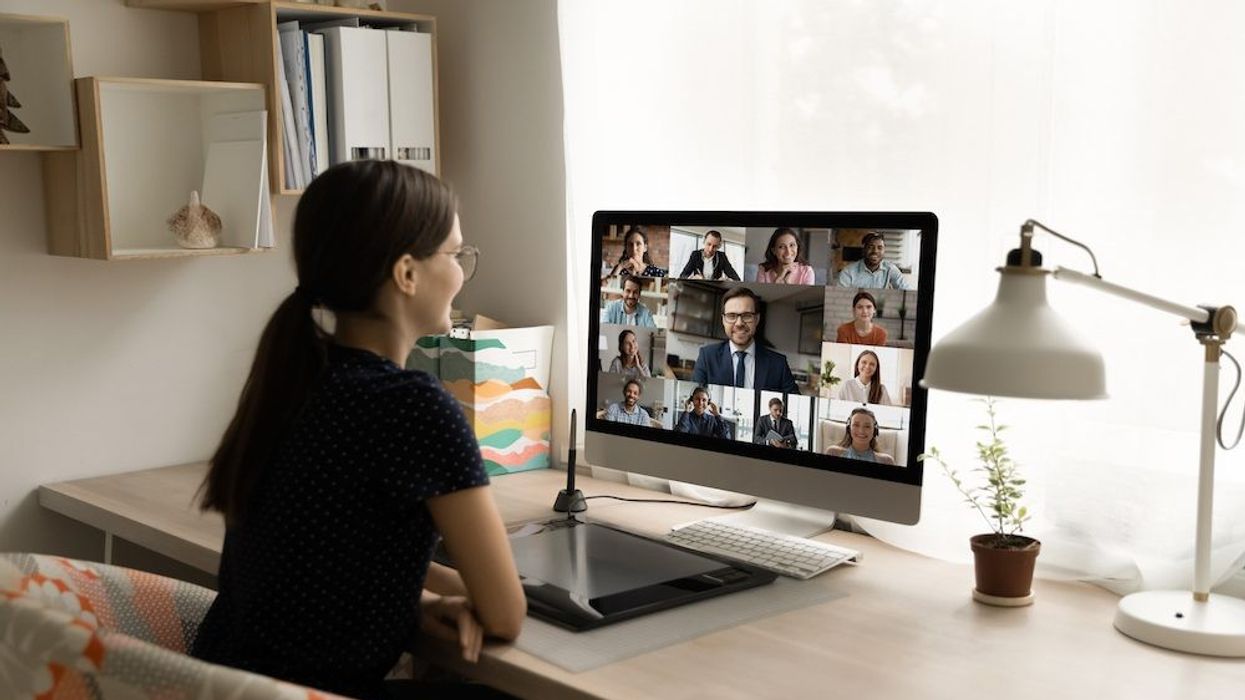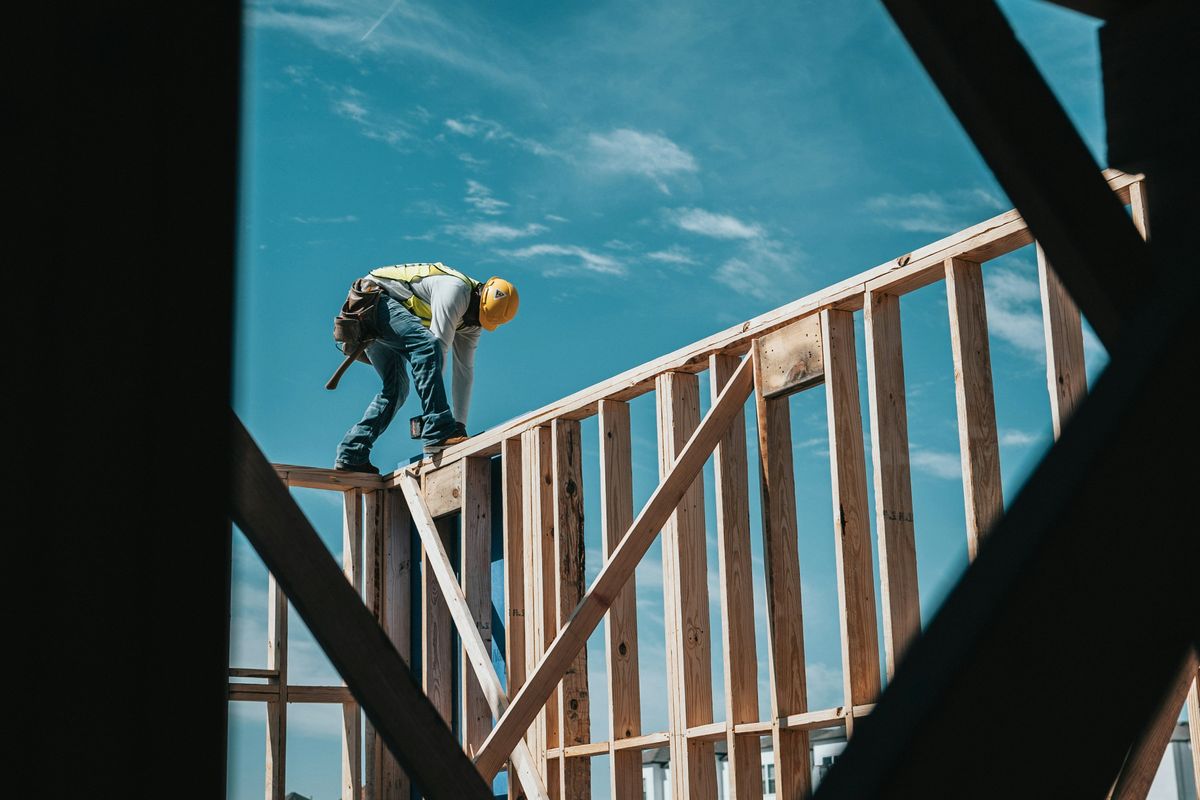At the onset of the pandemic, when daily life took on a largely digital approach, so too did the Ontario Landlord and Tenant Board (LTB); the tribunal readily transitioned its in-person hearings to an online platform to protect the health and safety of participants amid mandates to shelter in place.
The LTB shortly opted to remain digital-first indefinitely, announcing in November 2020 that the Zoom hearing format would stay post-pandemic. Now, nearly two years later, participants can request an in-person hearing if they so choose -- but tenant advocates say this isn’t clear in LTB communications, putting vulnerable participants at a disadvantage.
“We’ve had two-and-a-half years of living in a pandemic, and now we’re re-emerging -- the courts are offering in-person trials and appearances, the Rogers Centre is full, there are people watching Blue Jays games, and the Ontario public service are all back to work as of April,” Douglas Kwan, Director of Advocacy and Legal Services at the Advocacy Centre for Tenants Ontario (ACTO) tells STOREYS.
“But Tribunals Ontario is still issuing notices to users who have hearings scheduled for the Landlord Tenant Board, and those notices and emails state that they’re offering video hearings only, and the alternative accommodation is the phone, because of the COVID crisis. I recently saw one that was in late May that has the same language. It can be misleading to give people the impression that perhaps there is no in-person option, at all.”
An official LTB hearing notice shared by Kwan to STOREYS states, “Effective immediately, to protect the health and safety of all Ontarians against the COVID-19 threat, Tribunals Ontario will be holding video hearings to resolve some applications with an option to participate by telephone if you do not have access to the internet.”
READ: Ontario Budget Earmarks $2B for Infrastructure And $19B for OLT, LTB
Digital hearings, Kwan says, present a slew of issues that, in the worst cases, prevent access to justice for participants on both sides of the docket. The Zoom platform, he points out, isn’t well suited for the nature of hearings, as it doesn’t allow users to speak effectively at the same time, easily causing chaos in what is a highly litigious and anxiety-frought forum. Participants with literacy, language, or mental health issues can face barriers trying to access the technology, as well as those with limited internet data or phone access; hearings can be three to four hours long, requiring a hefty data plan, Kwan adds.
What is also concerning to him is reduced access to municipal homelessness and housing supports. In the past, in-person hearing locations were often in physical proximity to these resource offices; connecting vulnerable individuals with the right housing programs could be as simple as running next door.
“All of that work was being done over the course of the hearing block,” Kwan says.”When it’s digital, those municipal resources aren’t present at the board anymore. They simply can’t sit around and wait for hours.”
Kwan says ACTO is calling upon the province to reconsider the digital-first format moving forward, citing concerns that as docket numbers grow -- current case levels are still roughly 40,000 below the average of 80,000 annually -- delays will become more pronounced and access to justice issues will become more compounded.
READ: To Curb Evictions, Toronto Makes its Rent Bank Program Permanent
In a statement to STOREYS, the LTB states that the online format has actually improved the experience for many, and aligns with Ontarians’ expectations for the convenience of digital procedures. They also reiterated that while virtual hearings are the default, a number of alternative formats, including in-person, are available to participants.
“Virtual hearings have increased access to justice for many individuals who experience barriers with an in-person hearing model. The time to travel, time off work, and childcare expenses are often reported as challenges to accessing justice. These challenges are exacerbated in remote and rural regions, where travel distances can be significant. Virtual hearings can also be cost-efficient for parties with legal representation, reducing cost billed by legal representation for travel or waiting time at a hearing centre,” reads the LTB’s statement.
According to the LTB, between December 2020 to May 2022, 381 participants requested their hearing format be changed from virtual to in-person, either due to an accommodation need, or for procedural fairness, and that the majority were accommodated.
“In comparison, there have been approximately 91,000 virtual hearings at the LTB since August 2020. The conclusion to be drawn from these numbers is that the vast majority of parties appearing before the LTB prefer the convenience of the remote virtual format,” the LTB writes.
Tony Irwin, President and CEO of the Federation of Rental Providers of Ontario, says that while the virtual hearings were initially rocky for tenants and landlords alike, recent improvements in the technology have created a system that’s more easily accessible than the previous in-person format.
“In a lot of parts of Ontario, getting to the hearings was not easy, logistically, to travel; it’s one thing if you’re in Toronto, it’s another if you’re in the north or outside those communities where you have to travel longer distances,” he says. “So we are certainly hearing from more people that it is convenient not having to travel. I can understand that Internet can be an issue, and that’s an issue that the government is working on for everyone -- working from home has put huge pressures on that, so I can understand how that would be a challenge.”
What’s top of mind for him is that participants who require additional supports do have access to them, a topic he’s broached personally with the tribunal.
“From my perspective, as the President of FRPO -- and I raised this with the Board last week -- was ensuring that tenants that do need to be accommodated in different ways, whether it be wanting an in-person hearing, whether it be having technology issues [can be]. We don’t want there be new barriers to people in order to access hearings, but I think that the case is the government has invested significant dollars into their digital strategy, and digital transformation in Tribunals Ontario,” he says. “I think that makes a lot of sense, and I think the positives are numerous and I think as long as tenants who do have needs have them accommodate, I see it as a good system going forward.”





















